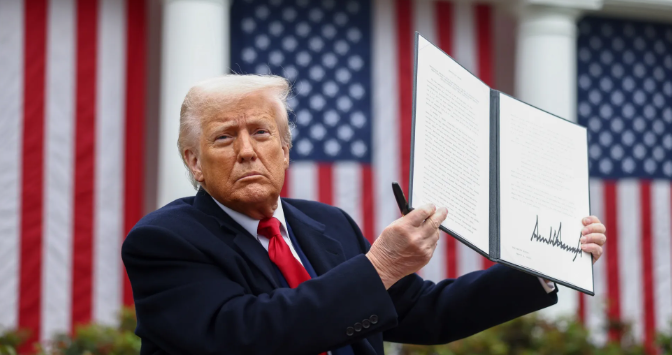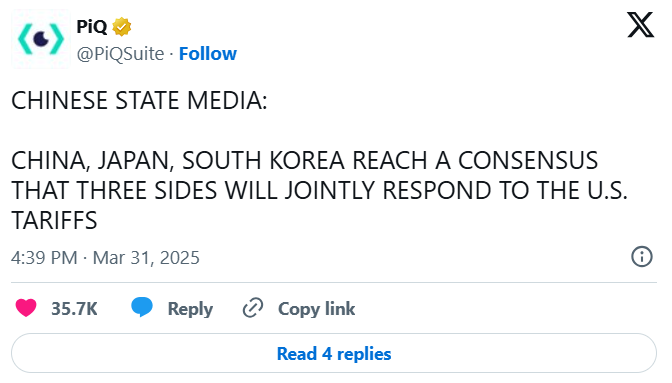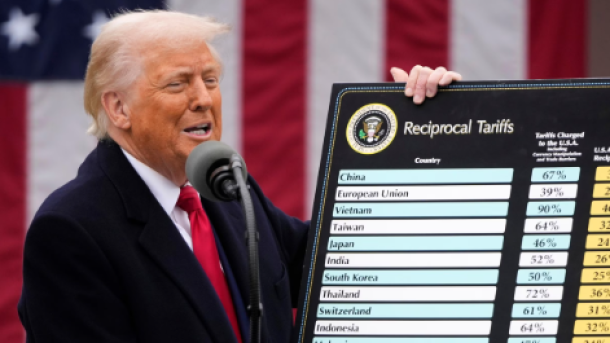Global trade war April 2025 has officially begun. Former U.S. President Donald Trump had warned that April 2, 2025, would be a pivotal day—and now, it’s here. He has introduced reciprocal tariffs on numerous countries, ranging from 25% to 54%, while also imposing a universal base tariff of 10%.
This move has fractured long-standing international partnerships and disrupted fair trade practices. Trump has long vowed to introduce reciprocal tariffs against nations that levy duties on American products. Among those affected are the United Kingdom, European Union, Japan, China, and Australia.
As capitalism reaches its peak and the cost of living soars, this aggressive economic policy could send shockwaves through the global economy. The tariffs essentially function as a substantial tax increase that may destabilize the international trade order. They also strain alliances built to uphold economic stability and peace. This shift could hit American households hard, with middle-class essentials—like housing, vehicles, and apparel—likely becoming even pricier.

Global trade war April 2025: How the World is Reacting
As more tariff announcements unfold, global leaders are working to reassure their citizens. The European Union now faces a 20% tariff, while Norway is subject to rates between 10% and 15%. Norwegian Minister of Trade and Industry Cecilie Myrseth addressed the situation on national broadcaster NRK, calling it “a serious day” and emphasizing the need to assess its full implications.
Australian Prime Minister Anthony Albanese criticized Trump’s justification for the tariffs, labeling the decision as unfriendly and unwarranted. “Reciprocal tariffs should mean zero, not 10% or higher,” he argued, calling the move contradictory to the values shared by the U.S. and Australia.
Similarly, Swedish Prime Minister Ulf Kristersson stressed that free trade and open competition have been pillars of Western prosperity. He reaffirmed Sweden’s commitment to international cooperation despite Washington’s recent actions.

Global trade war April 2025: The New Economic Landscape
The effects of these trade policies were evident even before Trump’s official announcement on Liberation Day. Earlier this week, China, Japan, and South Korea forged an economic alliance to counter Western influence in the Asian market.
This new coalition signals just how serious the consequences of Trump’s tariff policy could be. If major global players unite against the U.S., the balance of power in international trade could shift dramatically. Now, the world watches to see whether Trump will reconsider his stance on fair trade or continue on this contentious path.
Source: www.inquisitr.com



